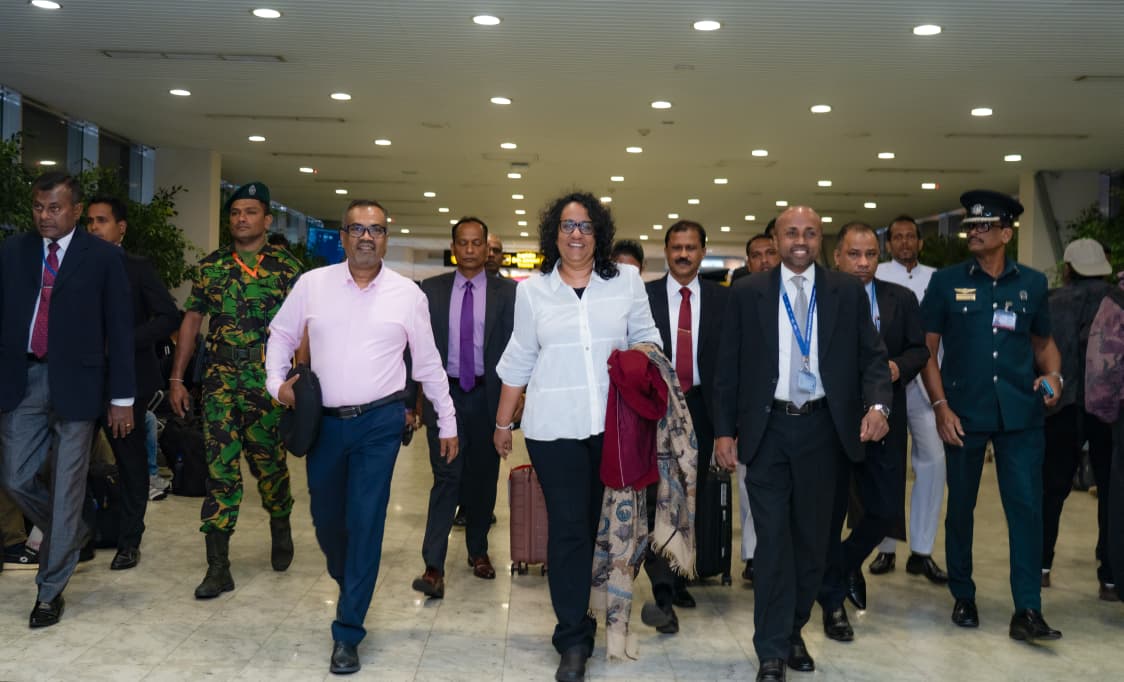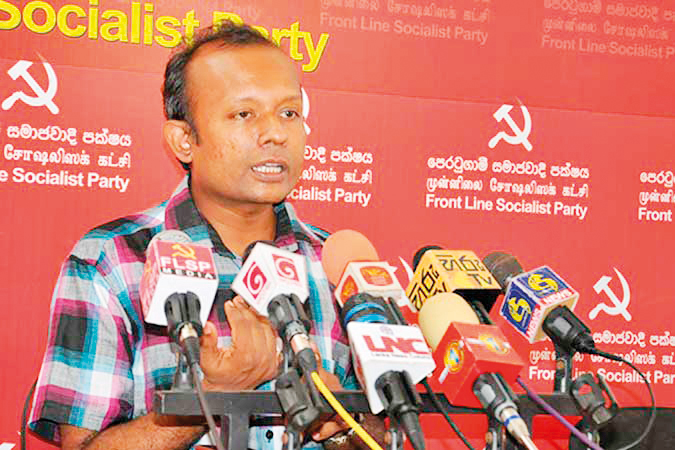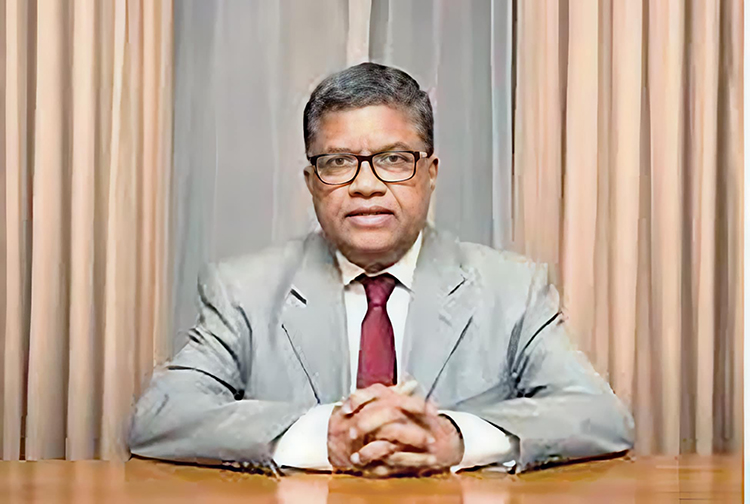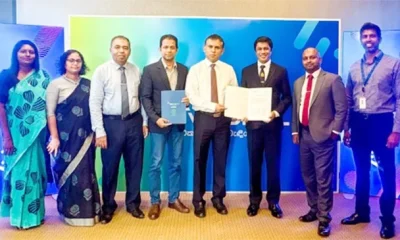News
CFL urges government to abandon USAID inspired labour reforms

The Ceylon Federation of Labour (CFL) has accused President Gotabaya Rajapaksa of “clandestinely” undertaking a program of labour reforms through the Ministry of Justice “to set, what is euphemistically called, a conducive environment for investment, especially Foreign Direct Investment (FDI).”
In a statement iussued last week, CFL General Secretary TMR Rasseedin said that these changes are sought to be made through the justice ministry usurping the functions of the labour ministry and called upon the government to abandon these ongoing efforts.
“At the very outset it has to be categorically stated that the mandate the government received from the country at the last Presidential and Parliamentary Elections did not include labour law reforms and that too with the assistance of a foreign agency with questionable antecedents.
“Labour reforms find no mention in President Rajapaksa’s Manifesto ‘Saubagya Dekma’. We are astonished to find that the Ministry of Justice (MoJ) has been engaged to review labour laws with the assistance of USAID, sans involvement of the Ministry of Labour and relevant stakeholders.”
Such an exercise, if at all, should be handled by the Ministry of Labour (MoL) and not by any other agency and, by doing so, the MoJ is usurping the role and responsibilities of the MoL to oversee matters involving labour in the country, the statement said.
“We hold the view that the MoL and the Department of Labour (DoL) hold the sole responsibility to manage issues related to labour in the country and oppose such interference by outside authorities. Previous attempts to promote such reforms catering to employer demands have been successfully beaten back by trade unions.
“In 2017 during the Yahapalana period, the then Minister of Labour abdicated his role and acquiesced in allowing the Ministry of Development Strategies & International Trade, with the assistance of some surrogate unions and the USAID to initiate labour reforms which were stymied in time by a strong protest by the overwhelming majority of unions in the National Labour Advisory Council (NLAC), the statement said.
“This project is now being revived under the MOJ whose Minister recently earned notoriety for some uncalled for remarks on strikes, exposing the limits of his knowledge of not only international law but also our own National Workers Charter which continues to govern our labour relations. It has to be stated that unless otherwise officially retracted, the National Workers Charter constitutes the policy framework that regulates labour affairs in the country.
“We urge the Minister of Justice to take stock of the ground reality before he ventures into unfamiliar terrains such as labour reforms. In an evidence-based comparison of labour market regulations vis-a-vis FDI, CFL has found out that there is no empirical evidence to justify the type of labour law regime that capital is seeking to advance in order to enhance its profit.
“The statistics obtained by the CFL covers key East and South Asian economies such as Vietnam, Indonesia, Cambodia, China, Myanmar, Pakistan, Bangladesh, India and Nepal with which Sri Lanka is in competition to attract FDIs for export-based manufacturing industries.
“The labour markets of some of these countries are often quoted by local authorities and some policy advocates as ideally positioned for the inflow of FDIs. As verifiably evidence from the online statistical base of the Doing Business 2019 World Bank Report, labour market regulation in Sri Lanka is clearly the worst or far below average when compared with the above key regional economies “
This was in respect of matters such as Minimum Wages Statutory protection in hiring i.e. probation periods, fixed term contracts etc as well as many others, CFL said.
It said the present Minister of Labour sought to give a more precise definition to the different employment categories such as Fixed Term, etc. when he gazetted the Minimum Retirement Age of Workers Bill on 12.10.21.
“However, during its passage through Parliament, we saw the Interpretation Clause being reworked to appease employer interests. The CFL understands that the main focus of the MoJ-USAID inspired labour law reform agenda is to further whittle down clauses from our statutes such as these which protect workers and thereby pave the way for a race towards the bottom.,” the statement said.
“The politically ill-advised and cronyism-driven present exercise of the MoJ under the aegis of a foreign government development agency with a questionable political record has to be stymied before it further degrades the labour laws of the country, which even today is way below average for the region.”
The Ceylon Federation of Labour urged the government “to abandon this clandestine project without stirring unrest among the working class that may well turn out to be calamitous for the government.”
Latest News
PM departs Sri Lanka to participate in the 56th World Economic Forum Annual Meeting in Davos-Klosters, Switzerland.

Prime Minister Dr. Harini Amarasuriya departed Sri Lanka on this morning (19 January) to participate in the 56th Annual Meeting of the World Economic Forum (WEF), to be held in Davos-Klosters, Switzerland, from 19 to 23 January 2026.
The World Economic Forum 2026 will be convened under the theme “A Spirit of Dialogue” and will bring together over 3,000 global leaders, including heads of state, government leaders, chief executive officers of leading multinational corporations, policymakers, and technology innovators.
During the visit, the Prime Minister is scheduled to hold a series of high-level bilateral meetings with key international leaders, heads of global institutions, and other distinguished dignitaries.
(Prime Minister’s Media Division)
News
Coal scandal: Govt. urged to release lab report

The government is under mounting pressure to release a foreign laboratory report on the controversial coal consignment imported for the Lakvijaya Power Plant, with the Frontline Socialist Party (FSP) accusing the authorities of political interference and tender manipulation.
Speaking to the media after a party meeting in Homagama yesterday, FSP Education Secretary Pubudu Jagoda demanded an immediate explanation for the delay in disclosing the report from a Dutch laboratory, Cotecna, which was commissioned to test samples of the coal stocks in question after doubts were raised about an earlier local laboratory assessment. Jagoda said Cabinet media spokesperson Dr. Nalinda Jayatissa had announced that the report would be submitted by 16 January, but it had yet to be made public.
“The Sri Lankan lab confirmed the coal was substandard and could damage both the environment and power plant machinery. The foreign lab has independently verified the same results, we are told. Yet, political pressure appears to be delaying the release of the report.” He warned that any attempt to issue a false report would eventually be exposed and urged the government and the laboratory to maintain transparency.
SLPP MP D.V. Chanaka told Parliament last week that while 107 metric tonnes of coal were normally required per hour to generate 300 megawatts, but as many as 120 tonnes of newly imported coal were needed to produce the same amount of power due to its lower calorific value. Tests showed the first two shipments had calorific values of 5,600–5,800 kcal/kg, below the required minimum of 5,900 kcal/kg, said.
Jagoda accused the government of tailoring procurement rules to benefit an Indian supplier, citing a drastic reduction in reserve requirements—from one million metric tonnes in 2021 to just 100,000 tonnes in 2025—and alleged previous irregularities by the company, including a 2016 Auditor General finding regarding a rice supply contract and the 2019 suspension of a key agent of the company by the International Cricket Council over match-fixing.
He further criticised systemic manipulation of the coal tender process, including delays in issuing the tender from the usual February-March window to July, and progressively shortening the submission period from six weeks to three, giving an advantage to suppliers with stock on hand.
The Ministry of Energy recently issued an amended tender for 4.5 million metric tonnes of coal for the 2025/26 and 2026/27 periods, following the cancellation of an earlier tender. Jagoda warned that procurement delays and irregularities could trigger coal shortages, higher spot-market purchases, increased electricity costs, and potential power cuts if hydropower falls short.
Jagoda called for urgent investigations into the procurement process, insisting that any mismanagement or corruption should not be passed on to the public.Denying any wrongdoing, the government has said it is waiting for the lab report.
by Saman Indrajith ✍️
News
Greenland dispute has compelled Europe to acknowledge US terrorising world with tariffs – CPSL

The Communist Party of Sri Lanka yesterday (18) alleged that the US was terrorising countries with unfair tariffs to compel them to align with its bigot policies.
CPSL General Secretary Dr. G. Weerasinghe said so responding to The Island query regarding European countries being threatened with fresh tariffs over their opposition to proposed US take-over of autonomous Danish territory Greenland.
US President Donald Trump has declared a 10% tariff on goods from Denmark, Norway, Sweden, France, Germany, the UK, the Netherlands and Finland with effect from 1 February but could later rise to 25% – and would last until a deal was reached. Targeted countries have condemned the US move.
Dr. Weerasinghe pointed out that none of the above-mentioned countries found fault with the US imposing taxes on countries doing trade with Russia and Iran. Now that they, too, had been targeted with similar US tactics, the CP official said, underscoring the pivotal importance of the world taking a stand against Trump’s behaviour.
Referring to the coverage of the Greenland developments, Dr. Weerasinghe said that news agencies quoted UK Prime Minister Keir Starmer as having said that the move was “completely wrong”, while French President Emmanuel Macron called it “unacceptable.
Dr. Weerasinghe said that Sri Lanka, still struggling to cope up with the post-Aragalaya economic crisis was also the target of discriminating US tariff policy. The top CPSL spokesman said that the recent US declaration of an immediate 25% increase in tariff on imports from countries doing business with Iran revealed the prejudiced nature of the US strategy. “Iran is one of our trading partners as well as the US. Threat of US tariffs on smaller countries is nothing but terrorism,” Dr. Weerasinghe said, stressing the urgent need for the issue at hand to be taken up at the UN.
Responding to another query, Dr. Weerasinghe cited the US targeting India over the latter’s trade with Russia as a case in point. He was commenting on the recent reports on India’s Reliance Industries and state-owned refiners sharply cutting crude oil imports from Russia. The CPSL official said that the EU wouldn’t have even bothered to examine the legitimacy of US tariff action if they hadn’t been targeted by the same action.
Perhaps, those who now complain of US threats over the dispute regarding Greenland’s future owed the world an explanation, Dr. Weerasinghe said. The reportage of the abduction of Venezuela’s President and the first lady underscored that the US intervened because it couldn’t bear the Maduro administration doing trade with China and other countries considered hostile to them, Dr. Weerasinghe said.
The CPSL official said that the NPP couldn’t turn a blind eye to what was happening. Just praising the US wouldn’t do Sri Lanka any good, he said, adding that the Greenland development underscored that the US under Trump was not concerned about the well-being of any other country but pursued an utterly one-sided strategy.
The US dealings with the NPP government, particularly the defence MoU should be examined taking into consideration US tariffs imposed on Sri Lanka at the onset of the second Trump administration and ongoing talks with the US, Dr. Weerasinghe.
By Shamindra Ferdinando ✍️
-

 Editorial2 days ago
Editorial2 days agoIllusory rule of law
-

 News3 days ago
News3 days agoUNDP’s assessment confirms widespread economic fallout from Cyclone Ditwah
-

 Business5 days ago
Business5 days agoKoaloo.Fi and Stredge forge strategic partnership to offer businesses sustainable supply chain solutions
-

 Editorial3 days ago
Editorial3 days agoCrime and cops
-

 Features2 days ago
Features2 days agoDaydreams on a winter’s day
-

 Editorial4 days ago
Editorial4 days agoThe Chakka Clash
-

 Features2 days ago
Features2 days agoSurprise move of both the Minister and myself from Agriculture to Education
-

 Business5 days ago
Business5 days agoSLT MOBITEL and Fintelex empower farmers with the launch of Yaya Agro App













